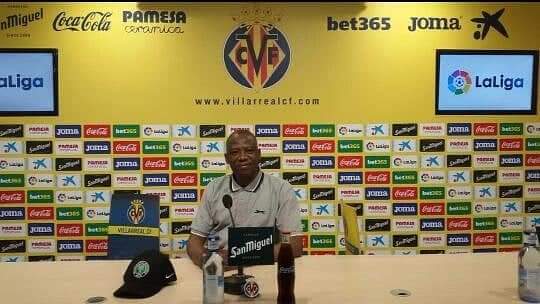(Complete Football, October ’91, page 22)
FIRST achievers are never forgotten in history. Chief Boniface Jimoh Oni (a.k.a ‘Bee Jay Ooh) can never be forgotten in the history of Nigerian football.
And the reason is simple: this was a man with the enviable record as the First FIFA-Graded Nigerian referee; the man who directed proceedings during Nigeria’s historic pre-independence friendly game against former colonial lords England in 1958; the man who was so versatile that, though football was his major constituency, his impact was felt in all sports during his time. His moniker: Bee Jay Ooh!
Born on the 24th of December 1910, BJO. attended C.M.S. Primary School, Okigwe and Government Secondary School, Agbor before he moved to Lagos in 1934 in search of the proverbial golden fleece. He became a labourer with the L. AMBROSINILTO and a part-time footballer.
Athlete
Being a multi-talented athlete, BJO was also involved in table -tennis. He was the team manager of the Nigerian side that captured the HATHRAMANI CUP in the Table Tennis Challenge series in 1948. They beat Ghana by 13 points to 8 in Accra.
But it was in soccer that the enigmatic personality of BJO blossomed to the world level. After a successful playing career with AFRICS Football Club (1938), and Habour Department F.C (1939), he joined the Lagos Referees Association as a trainee linesman and referee in 1940.
At that time, The Referees Association in Nigeria had very few indigenous members: Dr. Nnamdi Azikiwe, Bombadier Dawodu and Mr. Pabs Garnow. BJO was the fourth.
And he made his mark, earning the nickname ‘Hirelings’ (ABA-OBA-KU) alongside the other referees because all they did was in the interest of the sport. They were not paid any fees or allowances for their ‘black uniform’ services. But another nickname was soon to become BJO’s exclusively.
“Ikenike”
As a lover of music, a vocalist, and a fine guitarist, BJO joined the Empire Rhythm Band and later the Nigerian Police Band in 1946 where he sang the song “IKENIKE”. The title of the song became synonymous with him even till his death. Fans all over the country who saw him handling proceedings from the centre of the pitch never failed to cheer their favourite referee on. “IKENIKEEEE,” they would chant.
In 1954, BJO became the first Nigerian to be issued with a Class ‘A’ Graded One Referee Certificate. His name was thus forwarded to FIFA and the London Referees Associations to be placed on their lists of Grade I referees.
By this nomination, Chief Oni was chosen as the referee of Nigeria’s first international match against England in 1958. And though Nigeria lost by 1-5, the fairness exhibited by BJO was so pervading that there were no complaints about the officiating even from Nigerians.
Trophy
The manager of the English team, too, was so impressed that on his return to England, he made and sent a trophy to the N.F.A. with the inscription “B.J. Oni England versus Nigeria 1958”. The then N.F.A chairman, Mr Anthony Pius presented the trophy to the worthy Ambassador befittingly during another international match again involving England, but this time, against the Eastern Nigerian team, whom they beat 1-0.
Because of his exemplary and distinguished performance in the whistle trade, BJO became a permanent stand-by referee for any disputed FA Challenge Cup match. His track record took him to several parts of the country between 1954 and 1970 and his verdicts were never controversial.
Outside the field, BJO held the post of the chairman, Nigerian Referees Association from 1959 to 1965 and also became a member of the Lagos Amateur Football Association (LAFA) in 1966. His motto as a referee was consistent: “You can’t beat the laws of the game and may the better side win.” This he often shouted back at a cheering crowd and he lived up to the motto by being fair on all accounts. He retired from active refereeing in October 1972,
Because of his sporting activities, coupled with social contributions to the country, his hometown, Agbor, honoured him with the chieftaincy title of “EKA OBI” in 1972.
BJO would also be remembered for courageous acts beyond football. In August of 1938 for instance, he and a couple of friends risked their lives to save the lives of residents of the Girls Hostel of Queens College, Lagos during a fire incident
This was the man; this was the patriot that Nigeria lost on the 27th of July, 1991 to the cold hands of death; a self sacrificing man whose era ushered in firsts for Nigeria and pride for the nation.
ADIEU COMPADRE.

![Flashback: How Kanu and Finidi won Champions League with Ajax Amsterdam 25 years ago [Video] 1 Flashback: How Kanu and Finidi won Champions League with Ajax Amsterdam 25 years ago [Video] 1](https://naijasuperfans.com/wp-content/uploads/2021/03/Screenshot_20210304-144127-01.jpeg)

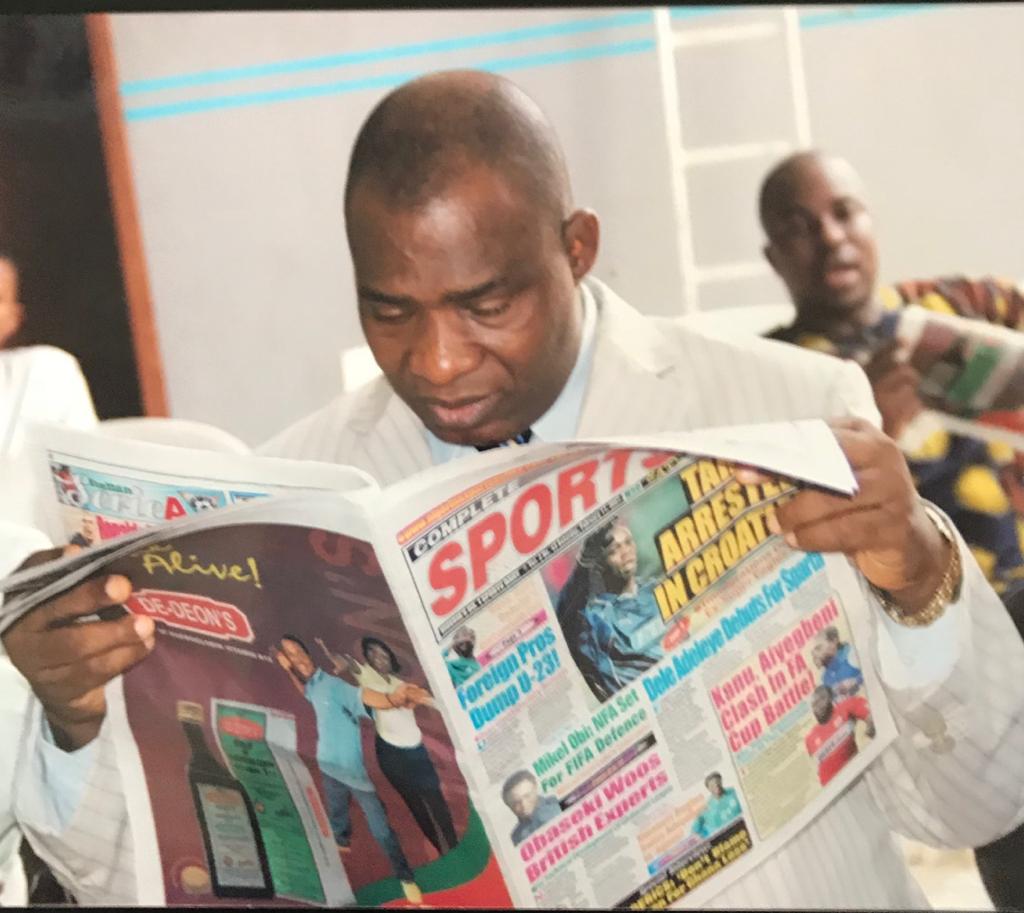

![Podcast EP 17: Listen to late Stephen Keshi talk about his AFCON story [1] 5 Podcast EP 17: Listen to late Stephen Keshi talk about his AFCON story [1] 5](https://naijasuperfans.com/wp-content/uploads/2020/05/stephen-keshi-1.jpg)
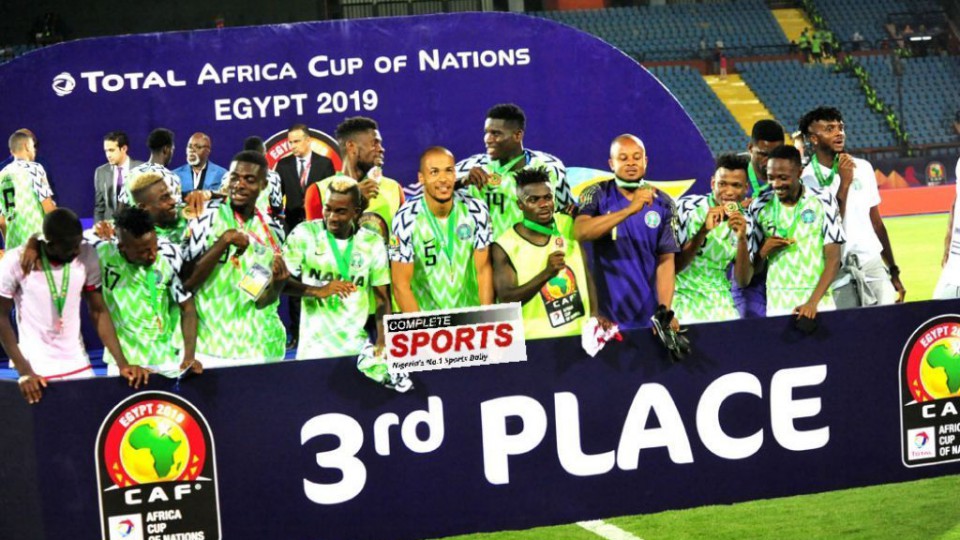

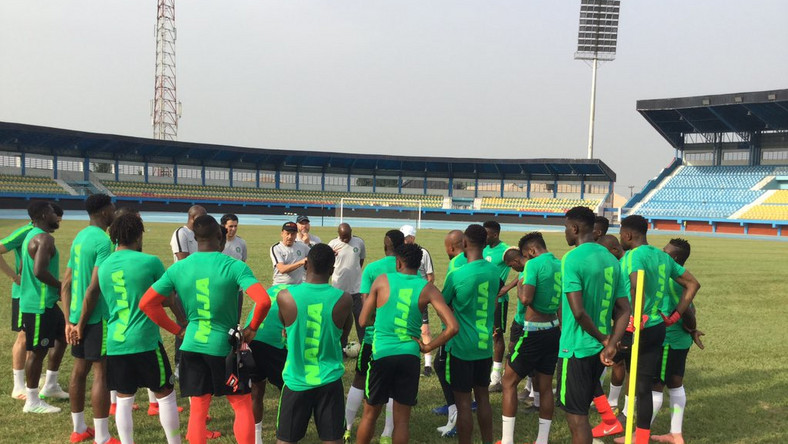
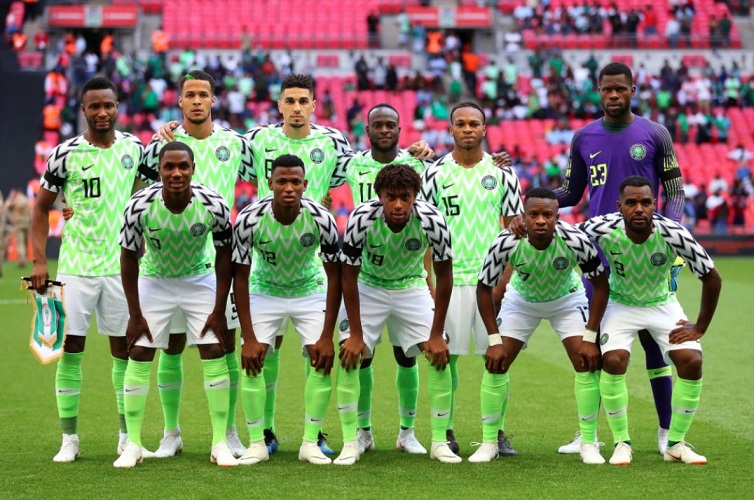
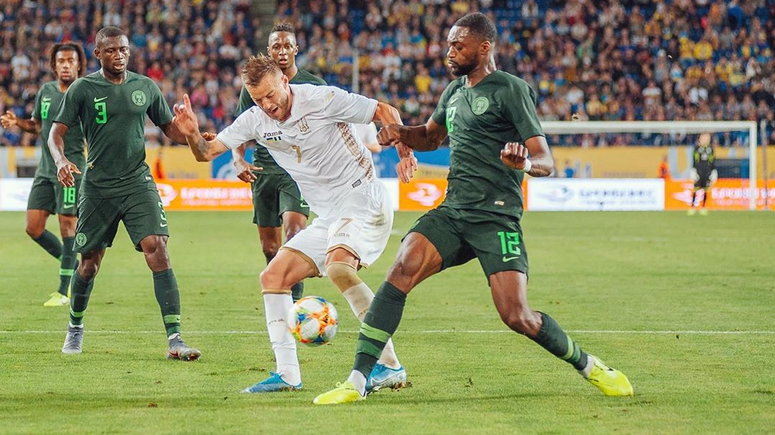

![Exclusive from Madrid: Mumini Alao on standby at the Bernabeu for El-clasico [Video] 12 Exclusive from Madrid: Mumini Alao on standby at the Bernabeu for El-clasico [Video] 9](https://naijasuperfans.com/wp-content/uploads/2020/03/IMG_9793-rotated.jpg)

